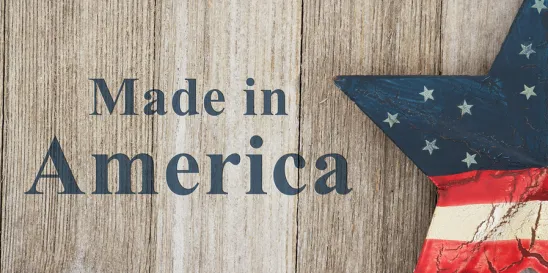Kubota to Face Historically High Penalty
The largest civil penalty for violating the Made in USA Labeling Rule (MUSA) is part of a settlement reached by the US Department of Justice (DOJ) on behalf of the FTC with tractor maker Kubota North America Corporation. The $2 million civil penalty arose from an FTC complaint brought against Kubota, and which resulted in a Stipulated Order for Permanent Injunction, Civil Penalty Judgment and Other Relief for falsely labeling replacement tractor parts as “Made in America” in violation of Section 5(a) of the FTC Act.
Repeat Offender
This was not Kubota’s first foray with the FTC for MUSA compliance violations. In fact, Kubota’s run-ins with the FTC began in 1998 with the FTC alleging that Kubota falsely advertised lawn and garden tractors as Made in the USA, notwithstanding the inclusion of significant imported parts. Kubota settled those allegations with the FTC in 1999 pursuant to a consent order, in which Kubota agreed that lawn or garden tractors or product lines could be advertised as Made in the USA only if “all, or virtually all, of the component parts of such products in such product line, are made in the United States and all, or virtually all, of the labor in manufacturing such product, or of all products in such product line, is performed in the United States.” The order terminated in 2019.
Notwithstanding this history with the FTC and MUSA, the FTC alleged that at least since 2021, Kubota “labeled thousands of replacement parts as MUSA when, in fact, they were wholly imported.” Further, the FTC asserted that Kubota sold millions of “wholly-imported replacement parts with false MUSA labels.” These misrepresentations are the basis for the FTC’s claims and the ultimate settlement agreement. In addition to the significant civil penalty, Kubota is prohibited from making unqualified claims regarding US-origin for any of its products unless it can demonstrate (i.e., substantiate) that the product’s “final assembly or processing — and all significant processing — takes place in the US, and that all or virtually all ingredients or components of the product are made and sourced in the US.”
On the other hand, qualified claims that products are Made in the USA will be required to contain clear and conspicuous disclosures about the extent of foreign parts, components, ingredients, and processing. If Kubota wants to make claims regarding the assembly of its products in the United States, it will have to ensure that the product is “last substantially transformed in the US, is principal assembly takes place in the US, and US assembly operations are substantial.”
Kubota North America is a unit of the Osaka, Japan-based Kubota Corp agricultural machinery manufacturer.
Takeaways
The FTC’s action against Kubota follows a litany of cases brought against companies for violations of MUSA in the past two years, further suggesting the seriousness with which the Commission views violations of such misrepresentations. Any company promoting products as Made in the USA needs to be well-informed of the legal requirements associated with making such claims and appropriately disclose US content.




 />i
/>i

